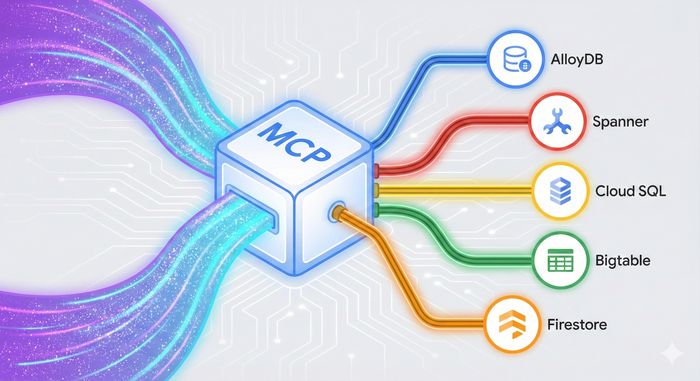Laying the foundation for a career in platform engineering

Darren Evans
EMEA Practice Solutions Lead, Application Platform
Yuriy Babenko
Customer Engineer, FSI
Imagine that you're an engineer at the company Acme Corp and you’ve been tasked with some big projects: integrating and delivering software using CI/CD and automation, as well as implementing data-driven metrics and observability tools. But many of your fellow engineers are struggling because there’s too much cognitive load — think deploying and automating Kubernetes clusters, configuring CI/CD pipelines, and worrying about security. You realize that to support the scale and growth of your company, you have to think differently about solving these challenges. This is where platform engineering might help you.
Platform engineering is “the practice of planning and providing such computing platforms to developers and users and encompasses all parts of platforms and their capabilities — their people, processes, policies and technologies; as well as the desired business outcomes that drive them,” writes the Cloud Native Computing Foundation (CNCF). This emerging discipline incorporates lessons learned from the DevOps revolution, recent Cloud Native developments in Kubernetes and serverless, as well as advances in observability and SRE.
A career in platform engineering, meanwhile, means becoming part of a product team focused on delivering software, tools, and services. Whether you’re just starting your IT career as a young graduate or you’re already a highly experienced developer or engineer, platform engineering offers growth opportunities and the ability to gain new technical skills.
Read on for an overview of the platform engineering field, including an introduction to what platform engineers do and the skills required. We also discuss the importance of user-centricity and having a product mindset, and provide some tips for setting goals and avoiding common pitfalls.
Common attributes of a platform engineer
So, what are some of the things that are expected of a platform engineer? Generally speaking, the role requires a mix of technical and people skills — job-related competencies that are necessary to complete work, as well as personal qualities and traits that impact how the role is approached. You can learn some of them to get started down the platform engineering career path, however there is no expectation that you need to know all of them to be successful, as these skillsets will often be distributed across your team. Here are some of the different attributes of a platform engineer:
- Takes a customer-centric approach — being a reliable partner for engineering groups, sharing knowledge, working with other teams including software developers, SREs and Product Managers
- Familiar with DevSecOps practices
- Avid learner, problem solver, detail-orientated, and able to communicate effectively across teams
- Able to articulate the benefits of the platform engineering approach to fellow colleagues and engineers
- Applies a product mindset for the platform, e.g., using customer user journeys and friction logs
Given its particular significance in the Platform Engineering realm, let's delve into the customer-centric approach from the list above.
The design loop and the significance of customer focus
If platforms are first and foremost a product, as the CNCF Platforms White Paper suggests, the focus is on its users. From the Google DORA Research 2023 we know that user focus is key: “Teams that focus on the user have 40% higher organizational performance than teams that don’t.”
At Google we believe that if we focus on the user everything else will follow — a key part of our philosophy. Having an empathetic user mindset requires a deep understanding of the needs and demands of your users, which is achieved through interviews, systematic statistics, metrics and data. You gather the data by focusing on both quantitative and qualitative metrics.
For example, you might decide to adopt Google’s HEART (Happiness, Engagement, Adoption, Retention, Task Success) framework, covered in detail in this whitepaper. As a platform engineer, you might be especially interested in the perceived “happiness” of your users with the offered platform services; you probably also want to measure and track platform adoption as well as (potential) retention of the offerings. Why are users coming to you or leaving? What is missing and could be improved in the next platform design sprint? Or perhaps you might want to create a friction log that documents the hurdles your users face when using your platform services. Ideally you can also become your own customer and use your own platform offerings, engaging with the friction log and users’ journeys through the platform.


The platform engineering design loop
We believe that an effective way to start thinking about platform engineering is to imagine a platform engineering design loop with you as a platform engineer at the center of it. You improve your customer focus by conducting user research that helps you understand their priorities better. You build empathy for them by documenting friction logs and other types of experiments. The platform backlog is where your team makes decisions on the engineering product portfolio, focusing on the platform’s contribution to your company’s value streams. Having a product mindset helps understand users’ needs, have a clear vision and roadmap, prioritize user features, documentation, and be open to product enhancements. Finally, once you have delivered the initial release of your platform, you continue iterating in this loop, making the platform better with every iteration.
What does a platform engineer actually do?
All this being said, a platform engineer performs a variety of tasks within a larger platform engineering group. Of course, nobody can do everything and you will require specialization, but here are some of the topics you might want to focus on:
Google Cloud services
- Container runtimes: Google Kubernetes Engine, Cloud Run
- Compute runtimes: Compute Engine, Google Cloud VMware Engine
- Databases: Spanner, Bigtable, Cloud SQL
- Build and maintain the internal developer portal
- Support developer tooling: Cloud Workstations
- Maintain CI/CD: Cloud Build, Cloud Deploy and Artifact Registry
- Implement compliance as a code for selected supported golden paths using Infrastructure Manager and Policy Controller, helping to reduce cognitive load on developers and allowing for faster time to deployment.
Architecture
- Gain a deep understanding of infrastructure and application architecture
- Co-writing with developers and support the golden paths through the use of Infrastructure as Code
- Create fantastic documentation as for example explained in our courses on technical writing. Don’t forget that architecture decision records are a key part of your engineering documentation.
Operations and reliability
- Site Reliability Engineering - Adopt best practices for reliable operations of your platform
- Security Engineering - Compliance, horizontal controls, and guardrails for your platform
Engineering backlog
- Use a backlog to list outstanding tasks and prioritize a portfolio of engineering work. The bulk of the focus should be on resolving the backlog of requests, with some additional time set aside for both continuous improvement and experimentation.
- Experimenting and innovating with new technology - This is an essential task for platform engineers, for example learning new services and features to better improve your platform.
Our industry has been focusing a lot on shifting complexity “left” to allow for better tested, integrated and secure code. In fact, here at Google we strongly believe that in addition to that, a platform effort can help you “shift down” this complexity. Of course, nobody can do everything (think about "cognitive load”), not even a superstar platform engineer like you!
What platform engineers should avoid ?
In addition to all the things that newly minted platform engineers should be doing, here are some things not to do:
- Failing to prioritize the needs of developers and neglecting them from the design loop
- Acting as a catch all for random tasks: Prioritizing and establishing the right culture is critical, and failing to do so will lead to burnout and lack of productivity (as shared in the State of DevOps Report 2023 report)
- Stagnating: Continual learning is not just a job perk, it’s a core part of engineers’ daily tasks
- Exhibiting hero engineer syndrome: Instead, spread out skills across the group and work at a sustainable pace
- Expecting immediate adoption upon building the platform without evangelism, education, and gaining developers’ trust
These are just some of the common pitfalls that we’ve seen so far.
Platform engineers are the backbone of modern software delivery
Platform engineers are essential for the success of a modern enterprise software strategy, responsible for creating and maintaining the platforms that developers use to build and deploy applications. In today's world, where software is constantly evolving, platform engineers are a key force to providing scalable software services and keep users as their primary focus. They carefully understand the demands and needs of their internal customers, combining their technology expertise with the knowledge of latest developments in the industry.
Finally, here are some further resources to aid in your platform engineering learning journey.
- The book Software Engineering at Google covers creating a sustainable software ecosystem by diving into culture, processes and tools
- Google SRE Books and workshops
- DORA.dev - research into the capabilities that drive software delivery and operations performance
- Google Cloud certifications -> Cloud Architect, Cloud DevOps Engineer, Cloud Developer, Cloud Security Engineer, Cloud Network Engineer


